Navigating the thin line between humor and hurt, this exploration questions if making fun of people veers into the realm of sinfulness.
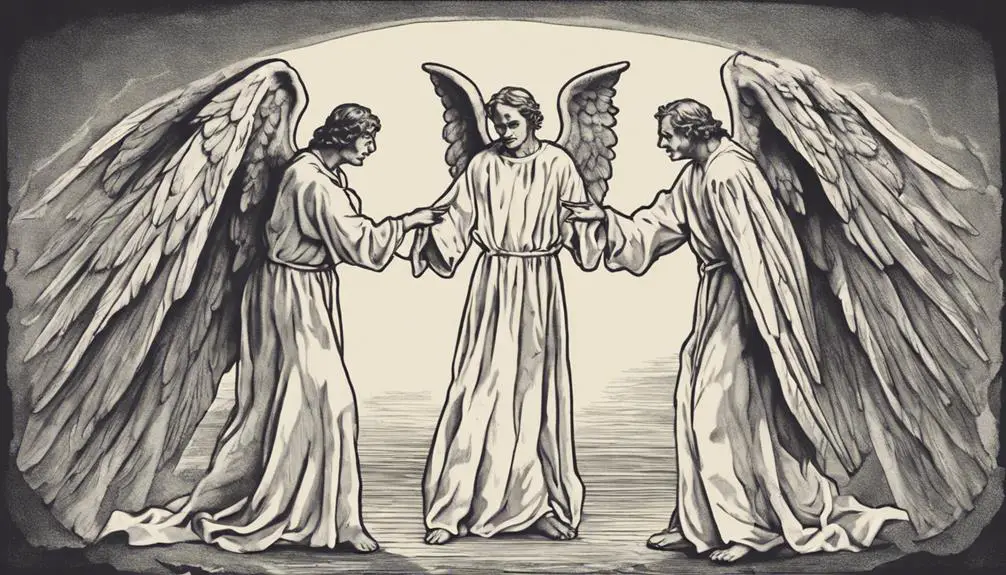
Is Making Fun of People a Sin?
Like a double-edged sword, humor can uplift or wound, leaving you to ponder whether making fun of people crosses the line into sin.
You've likely found yourself in situations where laughter came at someone else's expense, prompting a mix of amusement and discomfort.
Various religious doctrines offer nuanced views on this matter, suggesting that context and intent play crucial roles.
Ethical considerations and the psychological impact of mockery further complicate the debate.
As you navigate the fine line between humor and harm, consider how responsible jesting can enrich our interactions without causing distress.
The answer might surprise you, urging a closer look at our own behavior.
Key Takeaways
- Mockery, seen as belittling others, is frowned upon across various religions emphasizing compassion.
- Ethical considerations label making fun of people as potentially harmful, perpetuating stereotypes.
- Legally, mockery can cross into defamation or hate speech, highlighting societal norms.
- The psychological impact of mockery on individuals includes decreased self-esteem and long-term mental health issues.
Defining Sin and Mockery

To fully grasp the moral implications of mockery, it's essential to first unpack the concepts of sin and ridicule within a scholarly context. Sin, broadly defined, refers to actions that transgress moral or divine laws. Mockery, on the other hand, involves ridiculing or making fun of someone or something, often with the intent to belittle. Understanding the origins of mockery and its cultural differences is crucial to this discussion.
Mockery's roots can be traced back to ancient societies where it served various functions, from reinforcing social norms to critiquing authority. Its perception and acceptance vastly differ across cultures. In some, it's seen as a harmless way to foster social cohesion or as a form of satire that challenges the status quo. In others, mockery is viewed negatively, associated with disrespect and moral transgression.
The cultural context significantly influences whether mockery is considered a sin. While the act itself might seem universally understandable, its moral implications are not. They're deeply embedded in the cultural and social fabric of each society. Hence, it's important you recognize that the morality of making fun of people isn't a one-size-fits-all but varies across different cultural lenses.
Religious Perspectives
Religious texts and teachings offer a diverse spectrum of views on mockery, each reflecting the moral and ethical principles valued by different faith communities. While the interpretation of what constitutes sin varies, making fun of others is generally frowned upon across religions. This stance isn't arbitrary but deeply rooted in the cultural norms and values that these religions uphold. For instance, many religious teachings emphasize compassion, respect, and empathy towards others, principles that directly conflict with the act of belittling or mocking someone.
Moreover, the concept of divine forgiveness plays a crucial role in understanding the religious perspective on mockery. Most religions advocate for forgiveness and redemption, suggesting that while making fun of someone may be considered a sin, there's always a path to reconciliation and forgiveness. This aspect underscores the importance of self-reflection and the willingness to seek forgiveness for one's actions, not only from the divine but also from those we may have hurt through our words or deeds.
In essence, while religious viewpoints on mockery vary, the underlying message across faiths is clear: respect, compassion, and understanding should guide our interactions with others, reflecting the broader ethical and moral teachings of these traditions.
Ethical Considerations
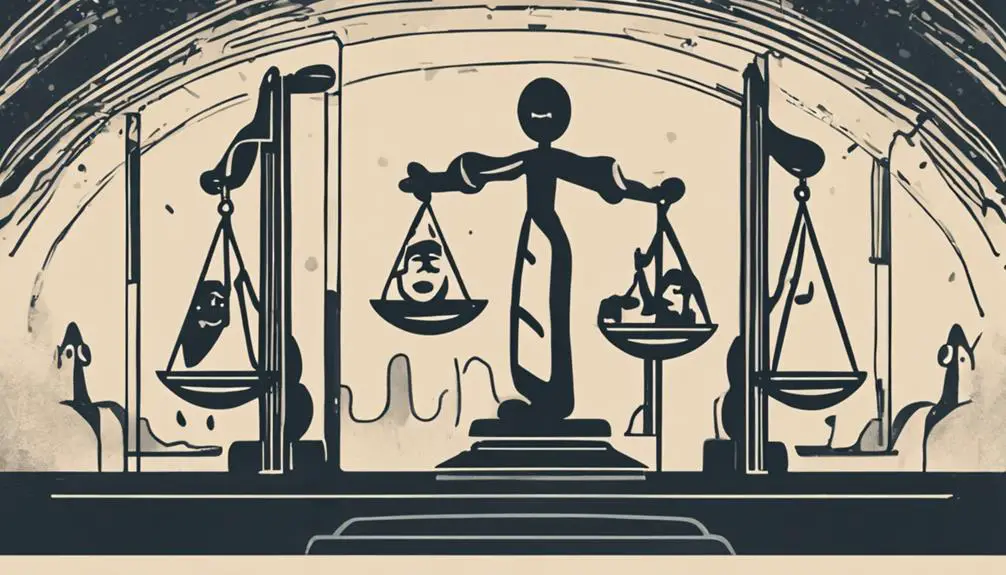
Beyond religious perspectives, ethical considerations also play a pivotal role in understanding why making fun of people can be deemed inappropriate or harmful. You're navigating not just personal boundaries but also broader societal expectations and cultural norms. These norms dictate what's considered respectful or derogatory behavior towards others. When you make fun of someone, you're not just engaging in a private interaction; you're contributing to a social dynamic that can perpetuate stereotypes, reinforce social hierarchies, and marginalize individuals or groups.
Moreover, the ethical landscape isn't static; it evolves with societal values. What was once seen as harmless jest may now be recognized as offensive or demeaning. This evolution reflects a growing awareness of the diverse experiences and vulnerabilities within our communities. You must consider the impact of your words in this broader context, recognizing that humor can both heal and hurt.
Additionally, there are legal implications to consider. In some jurisdictions, making fun of someone could lead to accusations of defamation, harassment, or even hate speech, depending on the nature and context of the remarks. This underscores the importance of understanding not just the ethical but also the legal boundaries governing interpersonal interactions in your community.
Psychological Impact
Delving into the psychological impact, it's crucial to recognize that making fun of someone can leave deep emotional scars, affecting their self-esteem and mental health. This behavior can significantly alter how individuals perceive themselves, potentially leading to long-term psychological distress. It's not just about the immediate embarrassment or sadness experienced; the repercussions can resonate far beyond the moment, shaping one's self-concept and affecting mental well-being.
Aspect |
Short-term Effect |
Long-term Effect |
|---|---|---|
Self-esteem |
Decrease in confidence |
Chronic self-doubt |
Social Interaction |
Withdrawal |
Difficulty in trusting |
Coping Mechanisms |
Defensive behavior |
Development of anxiety |
Understanding the psychological ramifications requires acknowledging the complex interplay between self-esteem effects and coping mechanisms. When people are made fun of, they may initially react by withdrawing or displaying defensive behaviors, strategies that might temporarily shield their self-esteem. However, these coping mechanisms can evolve into more entrenched issues like anxiety or depression if the ridicule continues or is particularly severe. This highlights the necessity of treating others with respect and kindness, as the psychological stakes are significant. The impact on an individual's mental health and self-esteem underscores the importance of considering the consequences before engaging in behavior that belittles or demeans.
Navigating Humor Responsibly
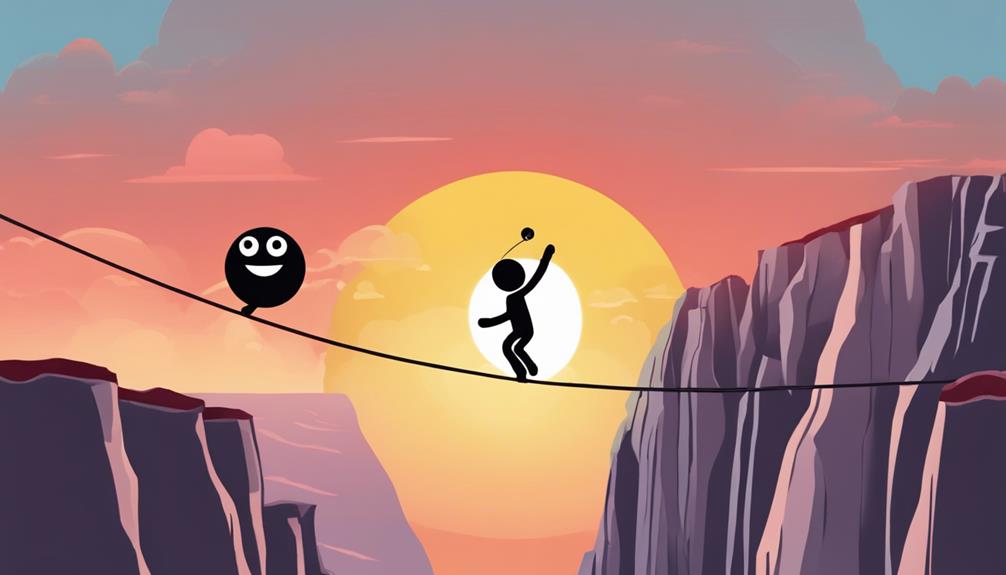
While humor can serve as a powerful tool for social bonding, it's essential to navigate its use responsibly to avoid causing unintended harm. Recognizing comedy boundaries is crucial in this endeavor. As you engage in humor, it's important to understand that what may be amusing to one person could be deeply offensive to another. This understanding is rooted in acknowledging humor variations across different cultures, social groups, and individual sensitivities.
To navigate humor responsibly, you must first listen and observe. Pay attention to the reactions of those around you when humor is employed. Are they laughing comfortably, or do their smiles mask discomfort? This observation will guide you in adjusting your approach to ensure it's inclusive and respectful.
Secondly, educate yourself on the diverse perspectives that shape how humor is perceived. By understanding the historical and social contexts that influence humor variations, you're better equipped to avoid jokes that may inadvertently perpetrate stereotypes or reinforce negative societal norms.
Frequently Asked Questions
How Do Different Cultures Around the World Perceive the Act of Making Fun of Others?
Different cultures perceive making fun of others uniquely, with varying degrees of cultural tolerance and humor boundaries. You'll find that what's considered humorous in one culture may be deeply offensive in another, reflecting diverse values and norms.
Can Making Fun of Someone Ever Be Legally Punishable, and Under What Circumstances?
Yes, making fun of someone can be legally punishable under defamation laws, especially if it harms their reputation. However, free speech rights also play a pivotal role, balancing respect for individuals with freedom of expression.
How Do Individuals Who Frequently Mock Others Justify Their Behavior Socially and to Themselves?
You often justify mockery by pointing to social dynamics, claiming it strengthens group bonds or highlights flaws humorously. This rationalization balances personal amusement with societal norms, navigating the fine line between humor and harm.
What Are the Historical Origins of Satire and Mockery in Literature and Arts, and How Have They Evolved?
You'll find satire and mockery in literature and arts trace back to classical influences, evolving through time into modern adaptations. These forms critically reflect society, blending humor with insight, and showcasing creativity across eras.
Are There Any Known Psychological Benefits to Engaging in or Being the Subject of Mockery, Under Any Contexts?
You'll find that engaging in or being the subject of mockery can, in specific contexts, positively affect self-esteem. Humor theories suggest it can enhance social bonds and personal resilience, offering unique psychological benefits.
Conclusion
In conclusion, you've seen how making fun of people intersects with notions of sin, ethics, and psychological well-being from various angles.
Religious teachings often caution against mockery, emphasizing compassion and respect.
Ethically, demeaning others can compromise moral integrity, while psychologically, it may inflict lasting harm.
It's vital you navigate humor responsibly, balancing wit with sensitivity.
Remember, humor that uplifts rather than undermines not only aligns with moral principles but fosters healthier, more inclusive communities.

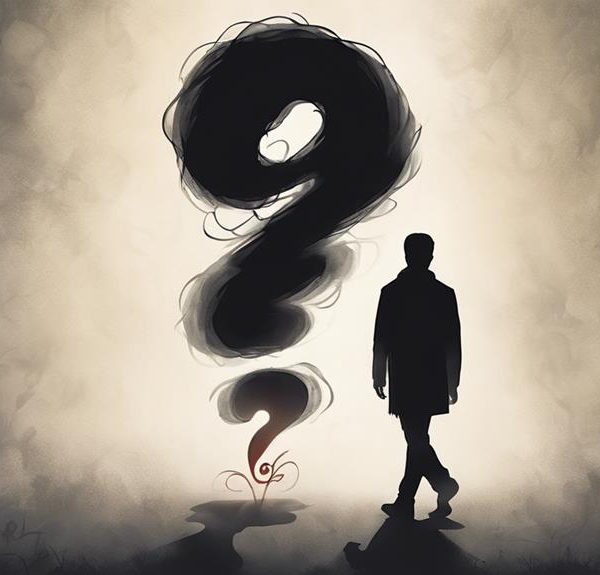
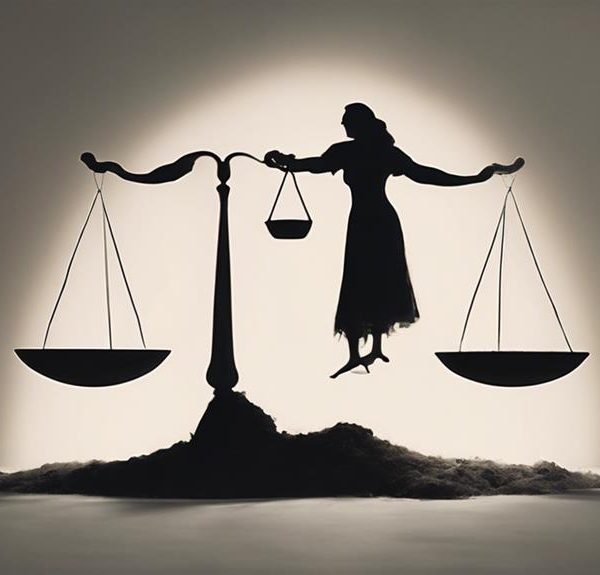
Sign up